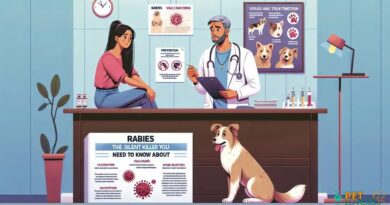What is: Anal gland tumors in dogs
What are Anal Gland Tumors in Dogs?
Anal gland tumors in dogs are abnormal growths that develop in the anal glands, which are located on either side of the dog’s anus. These glands produce a fluid that is used for marking territory and communication with other dogs. When tumors form in these glands, they can lead to various health issues and discomfort for the affected dog. Understanding the nature of these tumors is crucial for pet owners to ensure timely diagnosis and treatment.
Types of Anal Gland Tumors
There are primarily two types of anal gland tumors that can affect dogs: adenocarcinomas and adenomas. Adenocarcinomas are malignant tumors that can spread to other parts of the body, while adenomas are benign and less aggressive. The distinction between these types is significant, as it influences the treatment approach and prognosis for the dog. Regular veterinary check-ups can help in identifying these tumors early.
Symptoms of Anal Gland Tumors
Dogs with anal gland tumors may exhibit a variety of symptoms, including straining to defecate, excessive licking or biting at the anal area, swelling around the anus, and changes in bowel habits. Additionally, some dogs may show signs of discomfort or pain, such as whining or reluctance to sit. Recognizing these symptoms early can lead to prompt veterinary intervention, which is essential for a better outcome.
Diagnosis of Anal Gland Tumors
Diagnosing anal gland tumors typically involves a thorough physical examination by a veterinarian, including palpation of the anal glands. In some cases, imaging techniques such as X-rays or ultrasounds may be used to determine the extent of the tumor and whether it has spread. A biopsy may also be performed to confirm the type of tumor and guide treatment options. Early diagnosis is key to successful management.
Treatment Options for Anal Gland Tumors
The treatment for anal gland tumors in dogs depends on the type and stage of the tumor. Surgical removal is often the primary treatment, especially for malignant tumors. In some cases, additional therapies such as radiation or chemotherapy may be recommended to address any remaining cancerous cells. The veterinarian will create a tailored treatment plan based on the individual dog’s needs and health status.
Prognosis for Dogs with Anal Gland Tumors
The prognosis for dogs diagnosed with anal gland tumors varies widely based on several factors, including the type of tumor, its size, and whether it has metastasized. Generally, dogs with benign adenomas have a good prognosis after surgical removal, while those with malignant adenocarcinomas may require more extensive treatment and monitoring. Regular follow-ups are essential to ensure the dog’s ongoing health.
Preventive Measures for Anal Gland Tumors
While not all anal gland tumors can be prevented, certain measures can help reduce the risk. Maintaining a healthy diet and weight can promote regular bowel movements, which may help prevent anal gland issues. Regular veterinary check-ups can also aid in early detection of any abnormalities. Pet owners should be vigilant about their dog’s anal health and report any concerning signs to their veterinarian.
Living with a Dog Diagnosed with Anal Gland Tumors
Caring for a dog diagnosed with anal gland tumors requires attention and compassion. Post-surgery, dogs may need special care, including pain management and monitoring for any signs of complications. Providing a comfortable environment and following the veterinarian’s aftercare instructions are crucial for the dog’s recovery. Emotional support and patience are also important during this challenging time.
Research and Future Directions
Ongoing research into anal gland tumors in dogs aims to improve understanding of their causes, treatment options, and outcomes. Advances in veterinary medicine, including targeted therapies and immunotherapy, hold promise for enhancing the prognosis for dogs with these tumors. Pet owners are encouraged to stay informed about new developments and discuss any concerns with their veterinarians.



